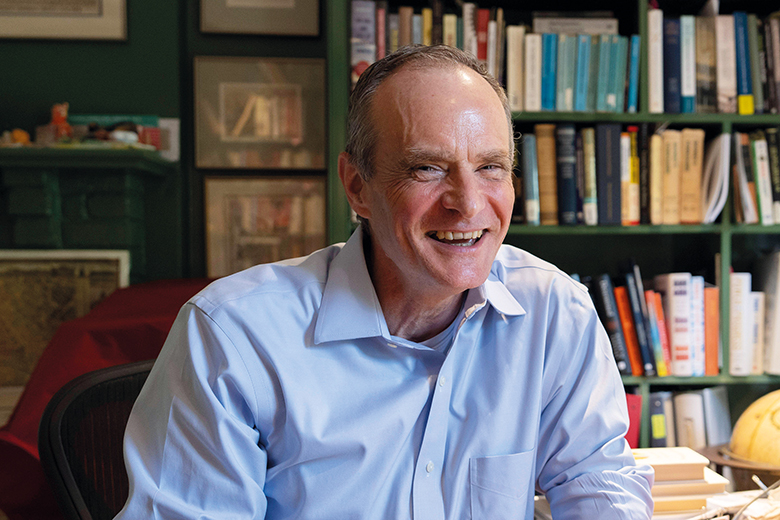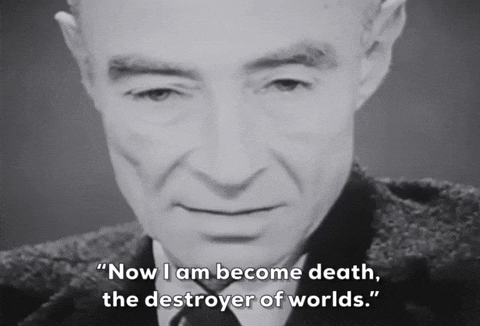The son of a Sheffield screw manufacturer, Simon Johnson began thinking about the world of work long before he studied economics.
“My dad ran a tiny workshop – he employed eight people – so I was very aware that it’s very hard to make a living,” reflected the professor of entrepreneurship at Massachusetts Institute of Technology, who was awarded this year’s economics Nobel – the Sveriges Riksbank Prize in Economic Sciences – for his work with his MIT colleague Daron Acemoglu and the University of Chicago’s James Robinson on why some countries are richer than others.
“I was also very aware of history, that Sheffield had been great but was in decline industrially,” Professor Johnson recalled of his teenage years in the late 1970s and early 1980s when Britain’s “steel city” was shedding about 1,000 engineering jobs a month.
That led him to study history and economics at the University of Oxford, eventually switching to politics, philosophy and economics in his second year and finishing with a first. After a master’s at the University of Manchester, he did his PhD at MIT, where he has worked since 1997.
ADVERTISEMENT
These days Professor Johnson regularly pops up on American television to confidently discuss everything from Donald Trump’s tariff plans to the idea of taxing big technology firms – he wants a 50 per cent levy on digital advertising revenues above $500 million (£385 million) – but he admitted that his early days as a doctoral student at MIT did make him question himself.
“My God, it was hard,” he reflected. “I was up against people from École Polytechnique, applied mathematicians and engineers from the top US colleges. It was 25 people hand-picked from the best places, or from an unknown school but the best they’d had in 25 years,” he said.
ADVERTISEMENT
That sense of striving to keep up at MIT has never left him, despite a starry career that has taken in stints at Harvard and Duke universities, as well as chief economist of the International Monetary Fund. “It took me 13 years to get tenure – it’s supposed to take six or seven years,” he said. “I was more focused on having fun, working with my friends on stuff that interested me.”
Evoking his own sense of excitement in his readers is a trait that shines out in Professor Johnson’s work, which often refers to science or detective fiction to explain tricky economic concepts. Kurt Vonnegut’s 1952 novel Player Piano – about workers rendered idle by technology – is one touchstone, while he notes how Sherlock Holmes would often take a horse-drawn carriage to the train station on his adventures, illustrating how new technology can paradoxically lead to more productive use of older gadgetry.
Fittingly, it was an act of detective work by the Conan Doyle fan that led to his Nobel – identifying disease as a key determinant of why European powers would establish highly extractive institutions in some colonies but more inclusive and democratic structures in other places, which have since thrived economically. “Daron and I talked about how geography could explain outcomes, but it wasn’t quite right. I went back to him with other ideas, but they didn’t work either.”
Eventually Professor Johnson wondered whether low survival rates in some 19th-century colonies might have dissuaded imperial powers from setting up growth-inducing institutions and instead favour short-term resource-stripping economies that hold sway today. “That’s what won me the Nobel, that moment of discovery,” reflected Professor Johnson on the idea behind the trio’s seminal 2001 paper.
ADVERTISEMENT
Second acts are notoriously hard for Nobelists – who are often seen as failing to hit the same academic heights after their evening in Stockholm – but this seems unlikely for Professor Johnson, who is embarking on a major project, the MIT Shaping the Future of Work Initiative. This work includes serious consideration of how “pro-worker artificial intelligence” could be developed to support employment, rather than the grim acceptance that AI will inevitably cause mass redundancies.
While he insisted he is “pro-private sector”, technological revolutions have often gone badly for the vast majority of people, Professor Johnson said. “Our reading of history is that technology is neither good nor bad for people – it depends on how you use it. You can have a pro-worker vision of technology, or you can have a vision where only the abbot or people close to the king do well when the water wheel is invented.
“There have been times when it went well – the second half of the 19th century with the rise of trade unions – but there have been times when it’s very tough; look at the cotton mills in Manchester, and the last 40 years have not been great for shared prosperity.”
Big tech’s role now cannot be overlooked, he said, advocating hefty taxes on social media. He noted the Harvard scholar Larry Lessig’s desire to tax “smoking, junk food and social media” in ways that recognise their harm. “We see ourselves as coming up with sensible, responsible ideas. This isn’t a mainstream idea yet but, in my experience of public policy, the answer is always ‘no’ until someone rings you up and says the world has moved on: ‘Where’s the plan?’”
ADVERTISEMENT
“Big tech doesn’t like us, but we need a plan for this, and the role of economists like us is to get ideas like this out there so they can be hammered out in the policy world.”
jack.grove











